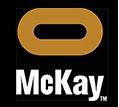Combating Skin Cancer on the Front Lines: DermaSensor Inc. Unveils Its Decade Of Clinical Research on Elastic Scattering Spectroscopy and Skin Cancer
MIAMI, Aug. 14, 2020 /PRNewswire/ -- DermaSensor Inc., a health technology company designing tools to better equip primary care providers (PCPs) to detect skin cancer, is unveiling its decade of clinical work ahead of its commercial pilot later this summer. The company has nearly completed its fourth IRB-approved clinical study and four other clinical studies are in progress.
Currently one in five Americans are diagnosed with skin cancer and that, coupled with its increasing incidence, presents a major public health challenge. DermaSensor's handheld optical spectroscopy device has the potential to significantly improve early detection of skin cancer. There are approximately 5.4 million basal and squamous cell carcinomas diagnosed in the US each year, and the American Cancer Society predicted that approximately 100,350 new melanomas will be diagnosed in 2020. Fortunately, 99% of skin cancer cases can be cured if detected early. Importantly, patients see primary care providers (PCPs) six times more often than dermatologists, but differentiating malignant from benign skin lesions is a challenge for all physicians. The dermatology training and experience necessary to be adept at the detection of skin cancer is not a priority in the training of PCPs. DermaSensor seeks to support America's hundreds of thousands of PCPs with an easy-to-use tool to help identify patients that need immediate follow-up for suspicious skin lesions.
"Access to dermatologists is becoming increasingly challenging in the U.S., and at the same time, we know that early diagnosis of melanoma and other skin cancers provides the best opportunity to address it," says Dr. David J. Leffell, professor of dermatology, plastic surgery and otolaryngology and chief of the skin cancer program at Yale School of Medicine. He is a member of DermaSensor's Scientific Advisory Board. "DermaSensor's technology holds the promise of improving access to early evaluation of skin cancer by equipping all primary care providers with a tool to better assess skin lesions that might require referral to dermatologists for biopsy or other evaluation and treatment."
Clinical work with the DermaSensor technology has consistently demonstrated encouraging results. Most recently, the company's DERM-ASSESS II study, a prospective multi-center study with dermatologists, evaluated the safety and efficacy of DermaSensor's device and machine learning algorithm. The study provides the clinical evidence needed for clearance with various regulatory agencies. The company anticipates that its tool will help primary care providers' to better assess skin cancer, ideally bringing them closer in line with specialists. In the reported results of DERM-ASSESS II there were no adverse events, confirming the safety of the light-based, non-invasive device. The DermaSensor device's overall sensitivity for skin cancer, that is the ability to correctly detect a malignancy when present,was 94.3%, and there was no statistically significant difference between this and the sensitivity from the in-person diagnoses made by the study's dermatologists (97.2%, p=0.1701). TheDermaSensor's reported sensitivity was 100% for melanoma and 93.3% for non-melanoma skin cancers in an independent test set of 141 skin cancers. The sensitivity of the in-person dermatologists' assessment was 90.9% for melanomas and 98.3% for non-melanoma skin cancers. There was also no statistically significant difference between the device's and dermatologists' specificity in the assessment of benign lesions biopsied during the study (27.8% and 31.0% respectively, p=0.5271). Because of the technology's strong performance so far, the company hopes its upcoming FDA pivotal study results will further confirm the product's benefits and that it will be approved accordingly.
The DermaSensor clinical and medical affairs teams, with an office in the United States and three offices abroad, are led by the Chief Medical Officer Cristiane Benvenuto, MD, PhD. Cristiane has extensive dermatology and digital health experience. She completed both an MD and a PhD and practiced as a dermatologist for several years in Brazil. Benvenuto received additional specialized training as a Fellow at the Skin Cancer and Melanoma Unit at Memorial Sloan Kettering Cancer Center in New York where her work focused on the non-invasive diagnosis of skin cancers. "As we work towards launching this groundbreaking product, we expect to change the way skin cancer is identified and allow for earlier treatment for millions of patients. Our studies so far have shown that we are on the right path," says Dr. Benvenuto. The company's efforts are guided by a world-class Advisory Board which consists of top scientists, researchers, and physicians spanning the United States, Italy, and New Zealand.
About DermaSensor Inc.:
DermaSensor Inc. is a health technology company designing tools to better equip primary care providers for skin cancer checks. DermaSensor's mission is to improve outcomes and save on healthcare costs by providing easy access to effective skin cancer checks for the majority of Americans who report never being checked for skin cancer. The DermaSensor device is an affordable, handheld tool that uses optical spectroscopy and machine learning to evaluate skin lesions for potential cancer in seconds. The DermaSensor device is investigational and is not currently available for sale. To learn more, visit www.dermasensor.com.
Press Contact
Jasmine Rochelle / Alpha Echo Agency
919-525-9906
SOURCE DermaSensor Inc.



